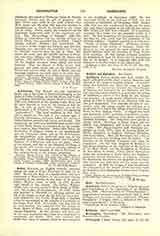

Areopagus (Greek Areios pagos), the name of (I) the Hill of Mars, situated to the west of and close by the Acropolis at Athens; (2) the court held upon the hill. An ancient legend accounts for the name of the hill by narrating that thereon the Amazons had offered sacrifice to Ares. Another legend declares that upon this mount Ares had been tried for the murder of Halirrhotius by a court of twelve gods. The latter legend was evidently suggested by the fact that from the earliest antiquity the Hill of Mars was the seat of a council, which had for one of its duties the trial of certain criminal cases. But the primary purpose of the council of the Areopagus was to direct religious worship and therefore, incidentally, to pass judgment upon theological innovations. It may be that the council formally and judicially exercised this function when St. Paul was brought before it; but it is more probable that the event narrated in Acts, xvii, 19 sqq. was not a legal trial of the Apostle or an authoritative judgment of his doctrine. Rather, it would seem from the informal character of his introduction to the assembly and his abrupt quitting of it in the midst of disorder (ibid., xvii, 32, 33) that he was conducted before the Areopagites upon the sacred hill merely that their curiosity might be satisfied by seeing him and hearing him, undisturbed by the rout in the Agora below. Some have thought, however, that St. Paul, on the occasion in question, was subjected to a formal trial on the ground that the Hill of Mars was too sacred a place to be invaded, and the council too august a tribunal to be disturbed except for actual judicial proceedings. At any rate it seems certain that in the time of St. Paul, the council of the Areopagus was clothed with judicial powers as considerable as it had ever enjoyed, and that among its rights was that of passing final judgment in matters pertaining to the religion of the Athenians. Before such a tribunal St. Paul was doubtless eager to speak, and the immediate result of his address (ibid., xvii, 22-31) was the conversion of at least one of the members of the venerable council.
JAMES M. GILLIS

